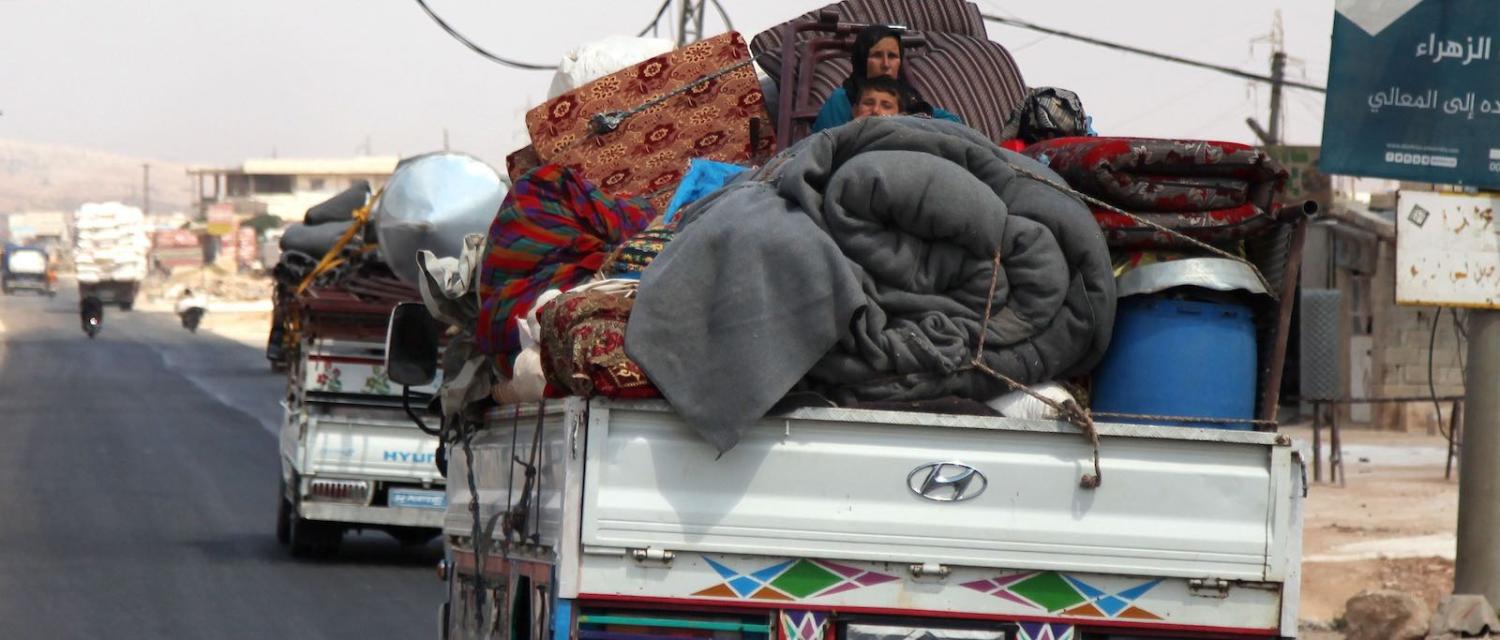The latest front to attract the wavering interest of the international community in the Syrian conflict is Idlib, a province where the population of rebels of various ideological stripes and their dependents has grown every time the regime of Bashar al-Assad has bludgeoned and negotiated its way to victory in other parts of Syria.
Now that Damascus and its allies have re-taken most other areas of immediate concern, the regime is able to concentrate its forces for an assault on Idlib.
Idlib was a convenient holding pen for these groups while more isolated or strategically important pockets of resistance were retaken by Damascus and its allies. It was also the largest of the four de-escalation zones established as a result of the Astana Process of international negotiations aimed at establishing peace, but the only one where Turkish troops on the ground made any Syrian government incursions militarily and politically difficult.
Now that Damascus and its allies have re-taken most other areas of immediate concern, the regime is able to concentrate its forces for an assault on Idlib. Concerns about the humanitarian impact of an all-out assault have been expressed from nearly all external actors, but similar calls with respect to other areas held by rebel groups have fallen on deaf ears in the past. They likely will again
A trilateral meeting in Tehran between Iran, Russia and Turkey on Friday was meant to work towards establishing a coordinated policy towards Idlib, but there was no sense that such an agreement was even close. Turkey’s call for a ceasefire was rejected, while the final communiqué spoke of the need to eliminate ISIS and al-Qaeda, support Syria’s territorial integrity, and continue humanitarian assistance. But the outcome resulted in no concrete measures for resolving the Idlib situation, other than stating it couldn’t simply be a military solution.
While nobody got what they wanted from the meeting, Turkey appears to be in the weakest position of the three. Ankara wants to avoid the consequences that would see refugees flee a full-scale assault on Idlib, and at the same time, forge an agreement that will allow displaced Syrians to return to the area at some time in the future without the devastation that ground assaults have wreaked elsewhere. Turkey also fears that if Idlib falls, then its proxy allies in Afrin further north will be targeted next, and its security buffer will be gone.
Of course, the complicating factor is the presence of armed Islamist and non-Islamist groups in the area (estimates vary from 30,000–70,000). Turkey differs from the other three countries’ views on how to approach these groups. Damascus, Tehran and Moscow simply term them “terrorists”. Ankara tries to split the difference: it has tried to convince its partners that it can help the “good jihadis” defeat the “bad jihadis” on the ground without the need for Damascus’ intervention.
For their part, Damascus and Moscow also want to avoid another costly bombardment and ground assault to re-take the territory. But they are willing to do it if necessary. And, having rejected Ankara’s offer of a ceasefire, they will continue to conduct their preliminary operations against targets in Idlib, using airpower to diminish and degrade anti-government forces, which Ankara is largely powerless to stop. Moscow will be content to extract maximum concessions from Turkey.
Syrian ground forces may be allowed to chip away at parts of Idlib in bite-sized pieces so that the pressure builds incrementally while negotiations with factions and Ankara continue. Rebel control of Idlib is less likely to end suddenly with a bang than with a steady military campaign of airstrikes and limited ground assaults. That is, unless and until Ankara can deliver a negotiated outcome on the part of the rebels, or Damascus and Moscow can exert sufficient pressure to achieve it directly.
As with most things in the Syrian civil war, whatever the outcome, it is unlikely to be neat.

